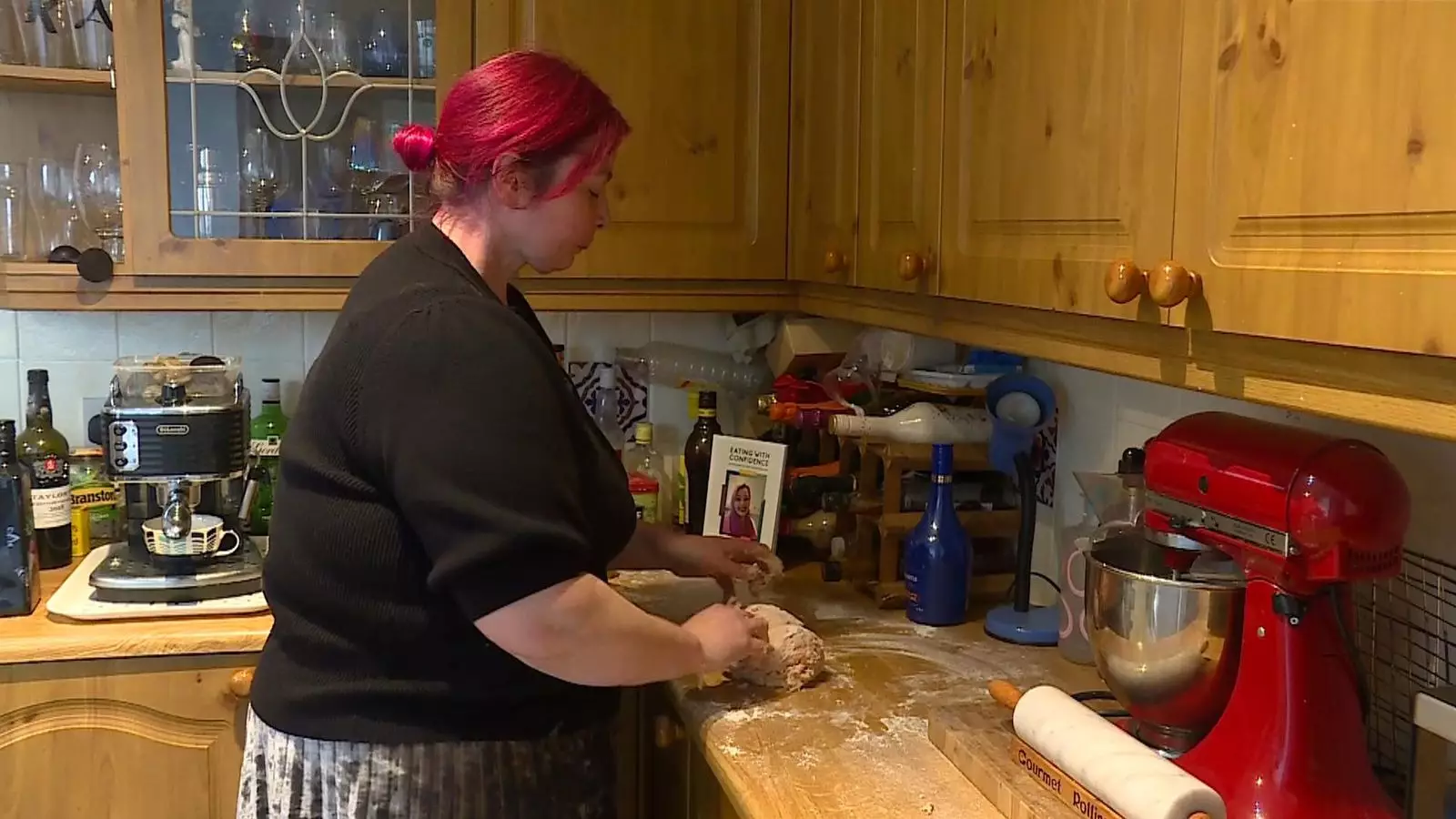At the heart of culinary passion is the joy of creating and savoring delicious food. For Laura Marston, a self-proclaimed foodie, cooking and baking is more than a hobby; it’s a vital expression of her identity. However, in 2019, a devastating mouth cancer diagnosis flipped her world upside down, forcing her to adapt to a new reality—one without her tongue. This profound shift not only altered how she experienced food but also became a catalyst for her mission to inspire and educate others about mouth cancer—a condition that is burgeoning in the UK.
Recent statistics from the Oral Health Foundation reveal an alarming trend: mouth cancer cases in the UK have soared to a staggering 10,825 in the past year, marking a dramatic 133% increase in diagnoses over the last two decades. With 3,637 lives lost to this disease in the same period, it is imperative to scrutinize the factors contributing to this rise and the importance of early detection and awareness.
Ms. Marston’s experience with mouth cancer sheds light on a grim reality: early diagnosis is often elusive. At 39, she often faced skepticism from healthcare professionals, resulting in an agonizing wait before the devastating news was confirmed. Unfortunately, by that time, the cancer’s progression mandated the removal of her tongue, a loss that she described as “brutal.” The psychological weight of such a diagnosis extends beyond the physical implications—it’s a confrontation with the fragility of life, the challenges of communication, and the necessity of re-learning how to eat.
Among the troubling statistics presented by the Oral Health Foundation, it is noteworthy that approximately one in three diagnoses are found on the tongue itself. With significant portions of cases also affecting the tonsils, gums, lips, and soft tissue, the need for increased vigilance is apparent. Furthermore, Dr. Nigel Carter OBE, Chief Executive of the foundation, emphasizes that the alarming trend denotes a critical public health message: awareness and education about the early signs of mouth cancer are indispensable for improving outcomes.
Laura’s journey has not only been about surviving mouth cancer but also about thriving in the face of adversity. She has courageously re-navigated the culinary world, discovering new ways to create meals that accommodate her altered physical capabilities. Ms. Marston’s challenges include meticulous meal planning and grappling with the fear of choking—an all-too-real concern. She describes, “I can’t just grab a meal. I have to plan, I have to have a lot to order.” This logistical dance around food has compelled her to become an advocate for others facing similar challenges.
To empower others who may find themselves in a comparable situation, Laura took it upon herself to pen a cookbook, an endeavor that combines her love for food with her newfound mission of sharing knowledge and encouraging others to embrace flavorful meals, regardless of their limitations. The act of writing this book reflects a powerful transformation; her voice, despite the challenges, is being amplified.
One cannot overlook the critical dialogue surrounding risk factors associated with mouth cancer. While smoking and heavy alcohol consumption have long been cited as primary contributors, the recent rise in cases linked to the human papillomavirus (HPV) presents a new challenge for public health. Dr. Carter highlights that mouth cancer is disproportionately prevalent among men over the age of 50, accounting for 66% of cases, which raises further questions about public awareness and preventive strategies.
The physician’s call to action emphasizes the necessity for heightened vigilance regarding oral health. Understanding the symptoms—such as unusual red or white patches in the mouth and lumps in the neck—is crucial for early intervention. As studies show, late diagnoses often correlate with poorer outcomes; therefore, improving public awareness around these factors could be the key to reversing the concerning trends in mouth cancer diagnoses.
The ramifications of Laura Marston’s story extend far beyond her personal journey; they highlight a pressing need for systemic change within the healthcare infrastructure. As addressed by a Department of Health and Social Care spokesperson, the National Health Service (NHS) faces significant challenges. With a commitment to improving cancer diagnosis and treatment, there is hope that more lives can be saved through earlier detection and better access to care.
Laura Marston’s uplifting narrative amid a harrowing diagnosis underscores the importance of awareness, education, and empowerment in the face of mouth cancer. Her story serves not only as a reminder of the fragility of life but also as inspiration for those navigating similar tribulations to embrace their circumstances and advocate for change in their communities.

Leave a Reply